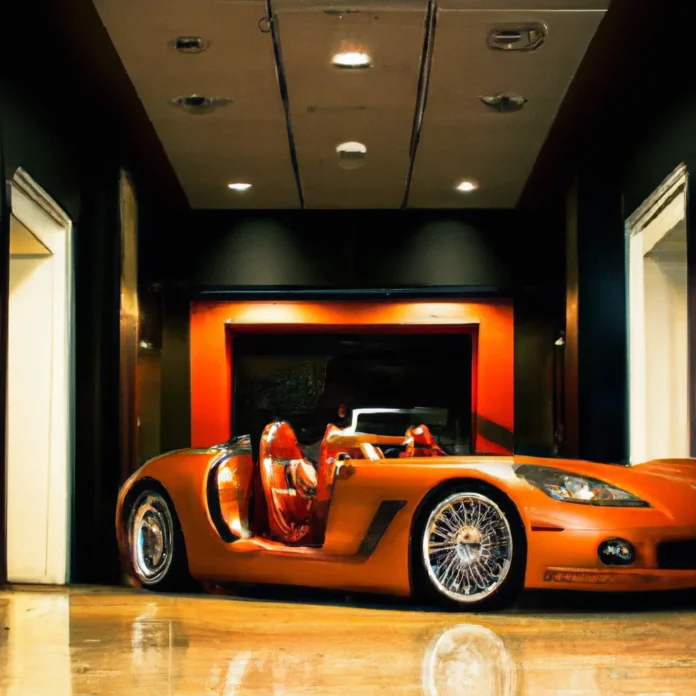Introduction to Exotic Car Brands
When it comes to the world of luxury automobiles, exotic car brands stand at the pinnacle of both performance and prestige. These vehicles are not just modes of transportation; they represent engineering marvels, artistic design, and an unparalleled driving experience. In this comprehensive guide, we will delve into various exotic car brands, examining their histories, unique characteristics, and performance metrics.
Understanding Exotic Cars
Exotic cars are typically defined by their limited production, high-performance capabilities, and luxurious features. Unlike mainstream vehicles, these cars often incorporate advanced technology and bespoke craftsmanship, making them highly sought after by enthusiasts and collectors alike.
What Makes a Car Exotic?
The term “exotic” denotes a vehicle that is not only rare but also offers exceptional performance metrics. Factors that contribute to a car’s exotic status include:
- Performance: Exotic cars often feature powerful engines that deliver extraordinary acceleration and top speeds.
- Design: Aesthetic appeal is paramount, with many cars showcasing innovative designs that turn heads.
- Limited Production: Many exotic brands produce vehicles in small quantities, increasing their desirability.
- Advanced Technology: Cutting-edge engineering and technology are common, offering superior handling, braking, and aerodynamics.
Major Exotic Car Brands
We will examine several prominent exotic car brands, each bringing its unique attributes and innovations to the automotive landscape.
Ferrari
Founded in 1939 by Enzo Ferrari, this Italian manufacturer is synonymous with luxury and speed. Ferrari’s vehicles are characterized by their distinctive design and high-performance capabilities. The brand’s commitment to motorsport, particularly Formula 1, ensures that its technology is always at the forefront.
- Iconic Models: Ferrari 488 GTB, LaFerrari, Ferrari F8 Tributo.
- Performance: Many models achieve 0-60 mph in under 3 seconds.
Lamborghini
Established in 1963, Lamborghini produces some of the most visually striking and powerful cars on the market. Known for their angular designs and aggressive styling, Lamborghini vehicles are a statement of both luxury and performance.
- Iconic Models: Lamborghini Aventador, Huracán, Urus.
- Performance: Many models feature V10 or V12 engines, providing exhilarating power.
Porsche
Porsche, founded in 1931, combines luxury with practicality. Its vehicles, particularly the 911 series, are revered for their engineering excellence and everyday usability without sacrificing performance.
- Iconic Models: Porsche 911, Porsche 918 Spyder, Cayenne.
- Performance: Known for precise handling and acceleration.
Bugatti
Bugatti, founded in 1909, is famous for creating some of the fastest production cars in history. The brand is renowned for its engineering prowess and luxurious design elements.
- Iconic Models: Bugatti Veyron, Chiron, Divo.
- Performance: The Chiron Super Sport 300+ holds the record for the fastest speed in a production car.
Aston Martin
Aston Martin is a British luxury sports car manufacturer known for its elegant designs and association with James Bond films. The brand captures a blend of performance and refinement.
- Iconic Models: Aston Martin DB11, Vantage, DBS Superleggera.
- Performance: Vehicles are often equipped with powerful V8 and V12 engines.
Performance Metrics of Exotic Cars
Performance is a critical aspect of exotic cars. We will explore the various metrics that define their capabilities.
Acceleration
Acceleration from 0 to 60 mph is a key performance indicator. Most exotic cars achieve this in under four seconds, with some high-performance models reaching these speeds in as little as 2.5 seconds.
Top Speed
Many exotic cars are designed for high-speed performance. Models like the Bugatti Chiron have top speeds exceeding 300 mph, making them some of the fastest vehicles available.
Handling and Control
Advanced suspension systems and precise steering mechanisms are vital for enhancing handling. Exotic cars often feature technologies like active aerodynamics and all-wheel drive to improve stability and cornering capabilities.
The Future of Exotic Cars
The automotive industry is shifting towards sustainability and electric vehicles. Many exotic brands are responding by developing hybrid and fully electric models while maintaining their high-performance standards.
Electric and Hybrid Models
As consumer preferences evolve, brands like Ferrari and Porsche are introducing models that combine electric power with traditional combustion engines, providing both performance and reduced emissions.
Innovative Technologies
Technological advancements such as autonomous driving and enhanced infotainment systems are becoming more integrated into exotic cars, allowing for a futuristic driving experience without compromising luxury.
Conclusion
Exotic car brands continue to captivate automotive enthusiasts with their blend of luxury, performance, and cutting-edge technology. As we observe the evolution of these brands, particularly with the rise of electric vehicles, the future of exotic cars looks promising. For those interested in luxury and performance insights, platforms like Autoxite provide valuable information and resources.


